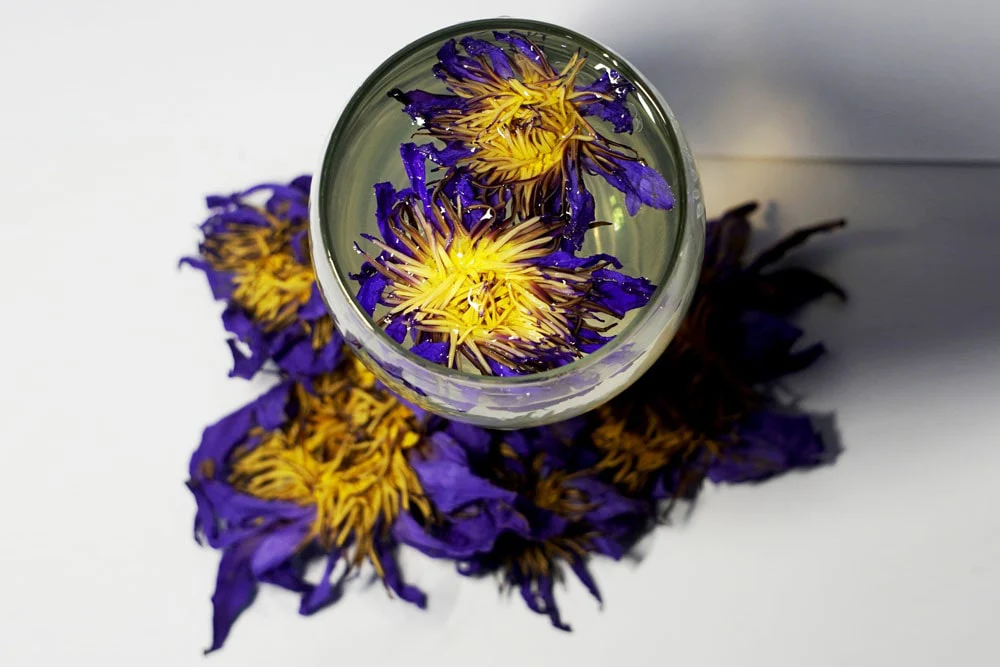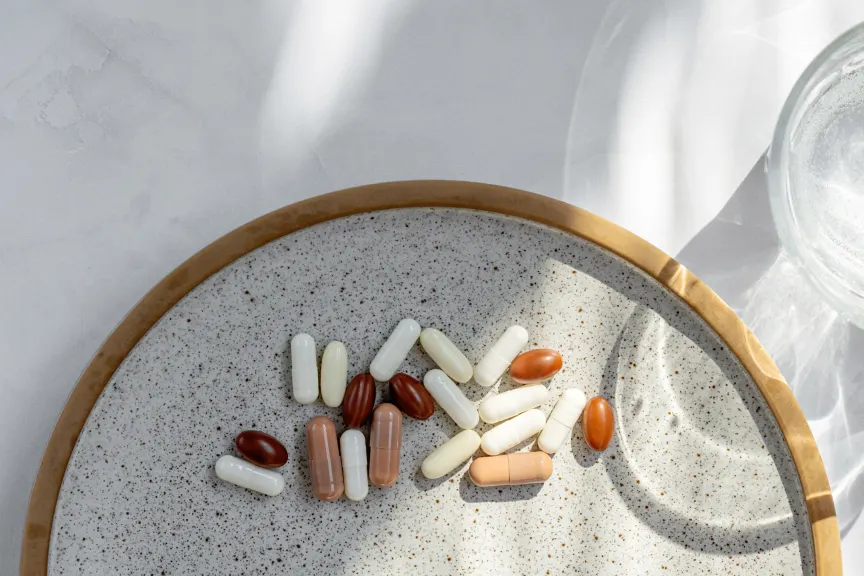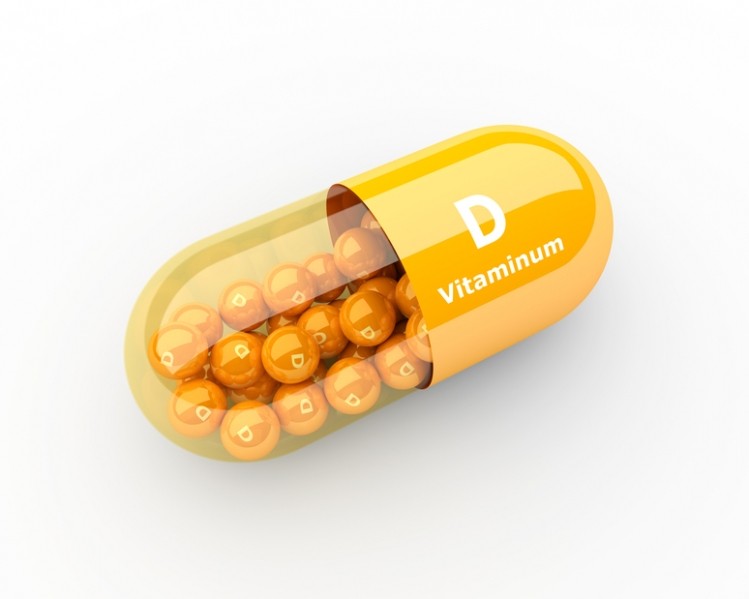The Enigmatic Blue Lotus Flower
The Blue Lotus Flower, scientifically known as Nymphaea caerulea, is an aquatic plant steeped in history and shrouded in mystery. Native to Egypt, this enchanting bloom has been intertwined with ancient rituals and spiritual beliefs. Today, it’s often sought after for its purported ability to induce relaxation, improve sleep, and enhance mood.
However, a veil of uncertainty shrouds the true nature of the Blue Lotus Flower. Despite its allure, scientific research into its properties is limited. While some studies suggest the presence of compounds like apomorphine and nuciferine, their effects on humans remain largely unexplored.
Moreover, the plant’s legal status is complex. It’s unregulated in many places, including the United States, raising concerns about product purity and safety. Consuming Blue Lotus Flower products can lead to unpredictable effects, ranging from mild sedation to hallucinations, paranoia, and even physical discomfort.
Given the lack of concrete scientific evidence and the potential risks associated with its consumption, it’s crucial to approach the Blue Lotus Flower with caution. Always prioritize safety and consult with a healthcare professional before using any herbal supplement.
Blue Lotus Flower: A Closer Look at the Claims
The Blue Lotus Flower, shrouded in an aura of mystique, has captivated the human imagination for centuries. Modern interest in this ancient plant has surged, fueled by claims of its potential benefits for sleep, anxiety, mood, and sexual performance.
However, scientific scrutiny reveals a different picture. While the flower contains compounds like apomorphine and nuciferine, which have shown potential in laboratory studies, human research on the Blue Lotus Flower is scarce and inconclusive. The claims of its therapeutic properties are largely anecdotal and lack robust scientific evidence.
Furthermore, the unregulated nature of the supplement industry raises concerns about product quality and safety. The absence of standardized manufacturing practices and quality control means that the composition of Blue Lotus Flower products can vary widely.
It’s essential to approach claims about the Blue Lotus Flower with skepticism. While it may hold cultural significance and historical interest, its role in modern healthcare remains unproven. Consumers should prioritize safety and consult with healthcare professionals before considering any herbal supplement.
Medicinal Benefits of the Blue Lotus Flower Supplement
The Blue Lotus Flower supplement is traditionally used for various health benefits, and while research is still emerging, it is believed to offer several medicinal properties:
Sexual Health: The Blue Lotus supplement has been traditionally used as an aphrodisiac, enhancing libido and sexual function, and supporting overall sexual health and vitality.
Stress Relief: The calming effects of the Blue Lotus supplement may help reduce anxiety and stress, promoting relaxation and mental clarity, making it a popular choice for those seeking natural stress management solutions.
Pain Management: Traditionally, the Blue Lotus supplement has been used as a mild analgesic, helping to alleviate headaches and muscle pain, offering a natural alternative for pain relief.
Sleep Aid: The sedative properties of the Blue Lotus supplement are believed to improve sleep quality and combat insomnia, making it a valuable addition to natural sleep support regimens.
The flowers, stems, and roots are the parts of the plant primarily used for health-related purposes. These parts are then made into extracts, oils, powders, resins, and electronic cigarette refill liquids (e-liquids.) You also may be able to find dried leaves that are used to make tea.
According to researchers, the leaf and flower extracts are better sources of the active compounds than the rhizome and root. Take caution with more concentrated forms, such as extracts, as blue lotus flower can cause hallucinations and euphoria in high doses.
People who use blue lotus flower are likely using it to improve sleep or reduce anxiety. Some people also use it to improve sexual performance and address mental health conditions
Blue Lotus Flower Supplement Side Effects
While the Blue Lotus Flower supplement is generally considered safe, it may cause side effects in some individuals, especially when consumed in large quantities:
- Drowsiness: Due to its sedative properties, the Blue Lotus supplement can cause drowsiness or a feeling of lethargy, particularly if taken in high doses, which may interfere with daily activities.
- Mild Hallucinogenic Effects: Some users report experiencing mild visual and auditory hallucinations, especially when consuming the Blue Lotus supplement in large amounts or in concentrated forms, which should be approached with caution.
- Allergic Reactions: Although rare, some individuals may experience allergic reactions, such as skin irritation or respiratory issues, after using Blue Lotus supplements, and should discontinue use if symptoms occur.
Potential Drug Interactions with Blue Lotus Flower Supplement
It is essential to be aware of potential drug interactions when using the Blue Lotus Flower supplement, especially if you are taking other medications:
- Sedatives and Sleeping Aids: Since the Blue Lotus supplement has sedative properties, combining it with other sedatives or sleeping aids may enhance these effects, leading to excessive drowsiness or impaired coordination, which can be dangerous.
- Antidepressants: The mild psychoactive effects of the Blue Lotus supplement could potentially interact with antidepressants, particularly those that influence serotonin levels, leading to adverse effects like serotonin syndrome, which requires medical attention.
- Antihistamines: The sedative effects of antihistamines may be amplified when taken with Blue Lotus supplements, increasing the risk of drowsiness and impaired alertness, which should be monitored carefully.
Overconsumption Risks
Taking excessive amounts of Blue Lotus Flower can result in several uncomfortable or alarming symptoms, such as hallucinations, chest pain, and tachycardia (rapid heart rate). Individuals may also experience anxiety, disorientation, paranoia, agitation, and hypoxia (low oxygen levels). In some cases, overconsumption has led to metabolic acidosis (a buildup of toxins) and priapism (an unwanted, persistent erection).
Recovery from these symptoms can take several hours. For instance, a study involving military personnel who visited the emergency room after vaping or ingesting Blue Lotus Flower reported that it took them approximately three to four hours to return to a sober state.
Due to its lack of FDA regulation and approval for human consumption in the U.S., there is no available information on safe or unsafe dosage levels for Blue Lotus Flower. It is advisable to adhere to the recommended dosage on the product’s packaging and consult a healthcare provider to ensure the product is from a reputable source and safe for use.
Legal Status of Blue Lotus Flower
The legal landscape surrounding Blue Lotus Flower is complex and often contradictory. While not classified as a controlled substance, its status as a dietary supplement is uncertain.
Key points to consider:
- Unregulated: The Food and Drug Administration (FDA) does not regulate Blue Lotus Flower as a dietary supplement, leaving a regulatory gap.
- State Laws: The legality of Blue Lotus Flower varies by state. Some states have explicitly banned its sale or consumption.
- Military Restrictions: The U.S. Department of Defense has prohibited the use of Blue Lotus Flower for military personnel due to its potential for abuse and contamination.
- International Regulations: The legal status of Blue Lotus Flower differs across countries. It is banned in some nations.
It’s essential to research the specific laws and regulations in your jurisdiction before considering the use of Blue Lotus Flower.
Quick Recap: Blue Lotus Flower
- Ancient Origins: Rooted in Egyptian history, the Blue Lotus Flower was once revered for its spiritual and potential medicinal properties.
- Modern Allure: Today, it’s marketed for relaxation, sleep, and mood enhancement.
- Limited Research: Scientific evidence supporting these claims is scarce and inconclusive.
- Potential Benefits: Anecdotal evidence suggests benefits like improved sleep ,reduced anxiety, better sexual health , and aid in pain management.
- Safety Concerns: The plant’s unregulated status, potential side effects, and lack of approved dosage guidelines necessitate caution.
- Legal Issues: Its legal status varies by region, with bans in some areas.
- Expert Advice: Consulting a healthcare professional before use is strongly recommended.




